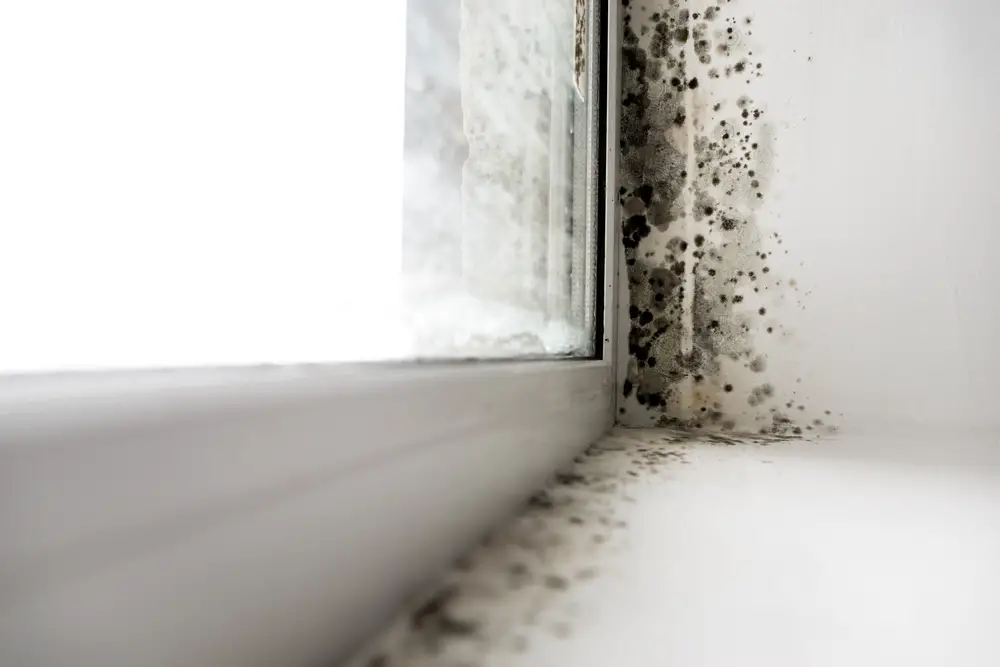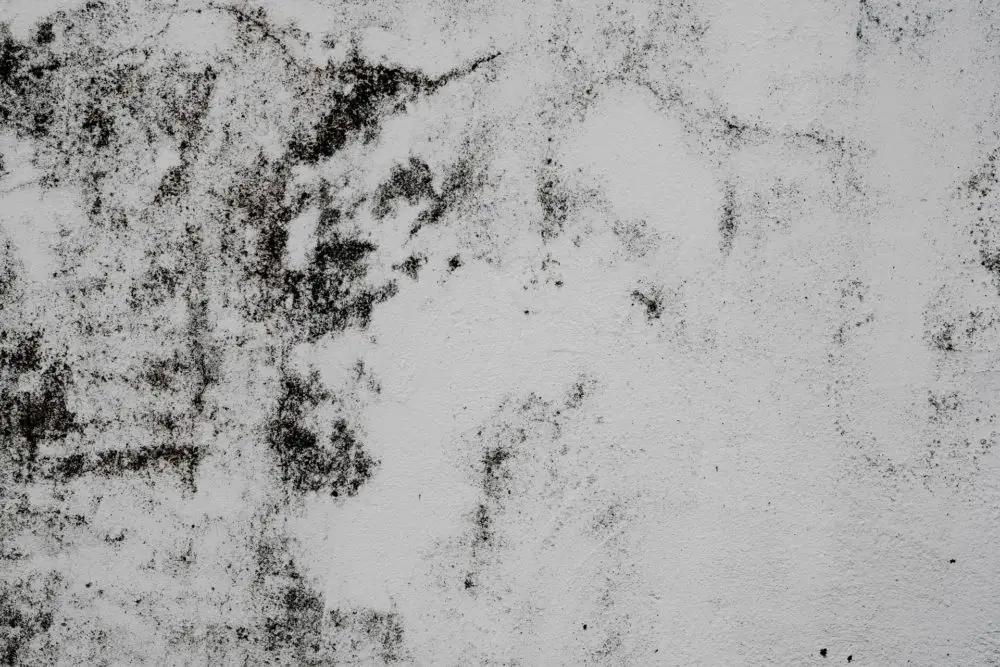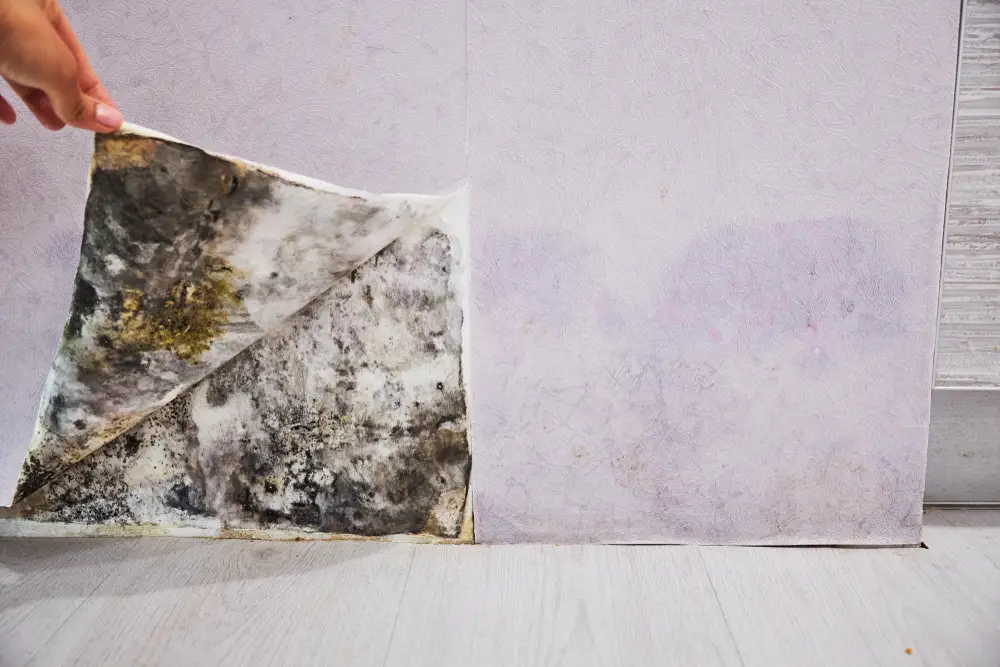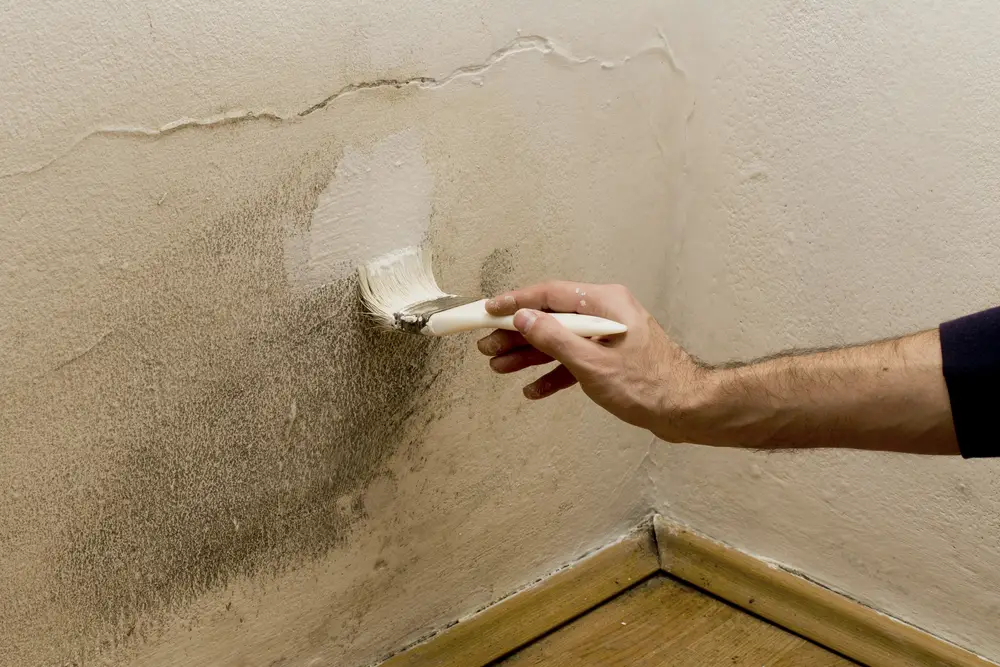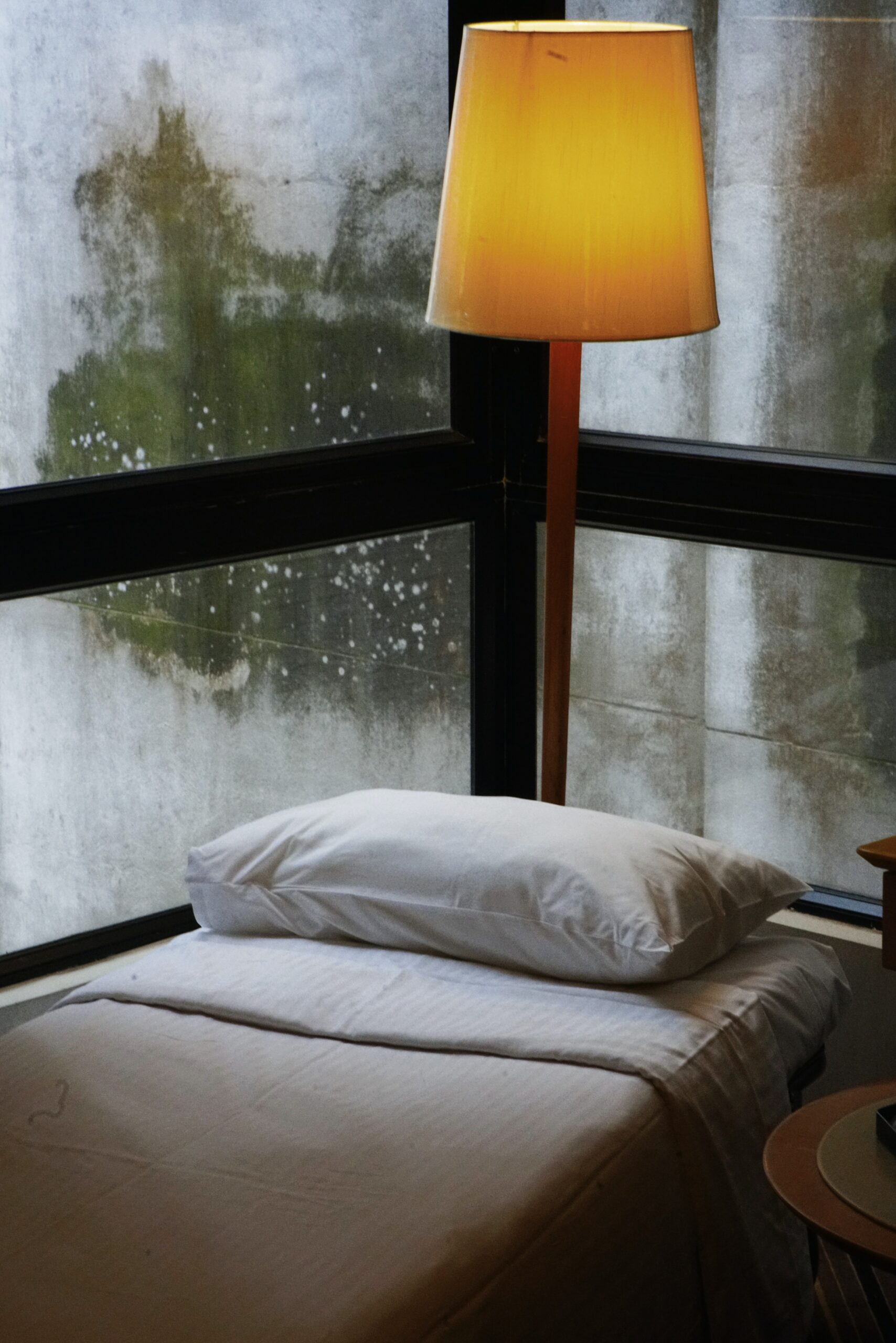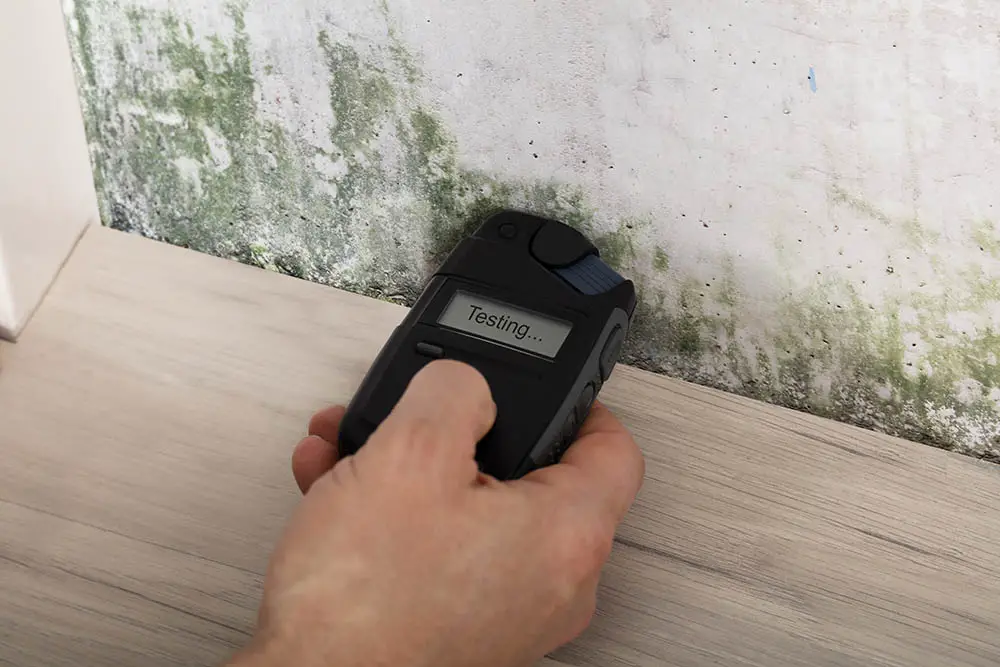If you have noticed some mold in your apartment or rental house, this doesn’t mean that you are immediately entitled to free rent. It depends on several factors if you can refuse to pay rent due to mold.
If you notify your landlord in writing right away and document the mold and all communications it will increase your ability to withhold rent or to break your lease and move out. Of course, landlords can avoid not being paid rent by responding to the tenant’s complaints about mold immediately.
If they hire a professional to evaluate the problem and remediate the mold if necessary, rent must still be paid.
Of course, the landlord must keep the tenants updated and apprise them of the situation.
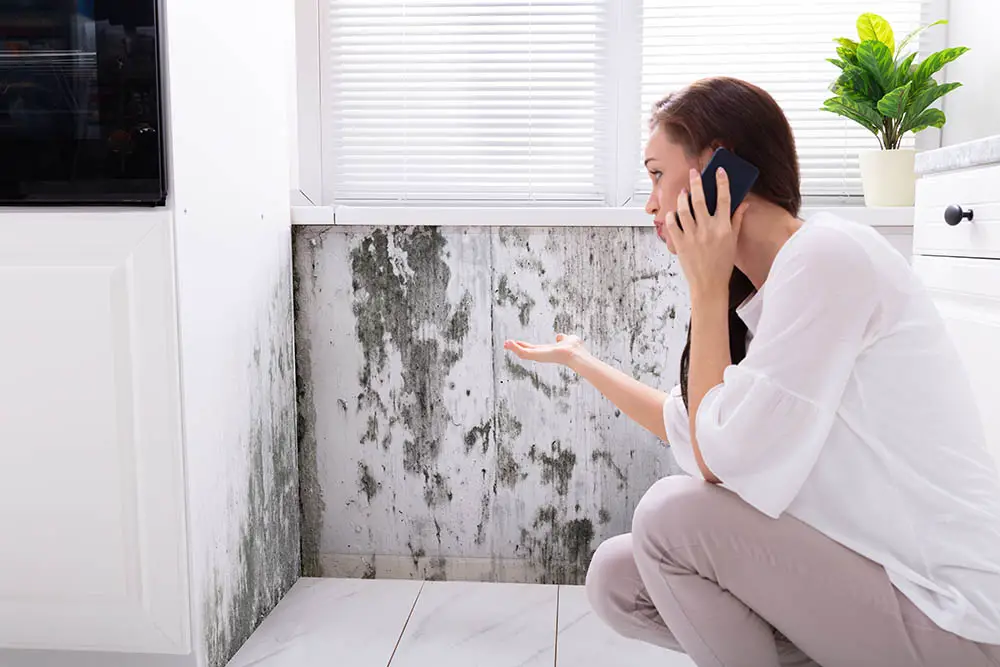
When a landlord does these measures, it is highly unlikely that the tenants can claim that they are entitled to withhold rental payments because of mold. However, if a tenant is not satisfied with the handling of the mold problem by the landlord, they can decide to withhold some or the entirety of the rent depending on their state laws.
It is important to look at the legality of self-help measures by tenants. On occasions, these measures are legal and completely justified but this can depend on each state’s tenant remedies laws.
While a number of states allow tenants to take such matters into their own hands if the landlord has declined or failed to provide a safe living environment, others are somewhat stricter.
You can check our state’s tenant rights by following this link.
The two strategies made by tenants that are commonly allowed by states are:
- Rent withholding – This instance is when a tenant or tenants refuse to pay rent altogether as they claim their home is not habitable for safety reasons
- Repair and deduct – This measure is when a tenant attempts to remove the mold of their own accord but then deducts these costs from their rental fees
Tenants must always follow the procedures and rules that are laid out by their state law.
Many states require a tenant to send written notice of a mold issue to their landlord with enough time for the problem to be addressed before help is provided.
Furthermore, quite a lot of states have a limit on the amount of money a tenant can spend when repairing and deducting.
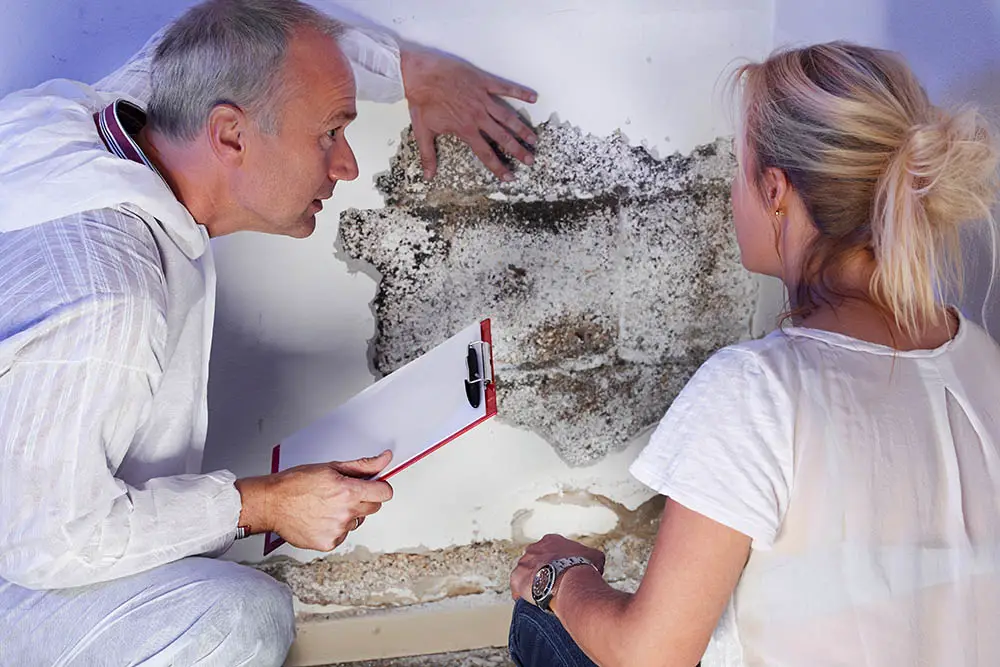
Tenants may be able to deduct a hundred or so dollars from their rent because of a damaged faucet but would not be able to deduct a thousand or so dollars on a larger job such as a water heater repair.
In this case, the tenants may have to sue the landlord for the necessary repairs or to be fully reimbursed.
Self-help remedies are generally reserved for uninhabitable situations or when the issue is dangerous to the health of the tenants. Minor mold problems will not justify the stoppage of rent payments.
Lastly, the self-help strategy is also not viable if the tenants or their guests created the condition for the mold to spread in the first place.
What can I do if my landlord won’t fix mold?
Mold can be a serious issue in homes. It can cause serious health problems if left untreated over some time.
Firstly, you should always contact your landlord and ask them to fix the mold problem.
Supply them with information on the cause of the mold, if possible, and check with your state’s laws on what can and can’t be done by yourself and the landlord.
If you have contacted your landlord and they have failed to respond, you should follow it up with a written letter.
This should restate your request. Mail the letter as certified mail and request a return receipt. Keep hold of this receipt as proof of contact with your landlord and staple it to a copy of the letter.
You must keep copies of all documentation in case the matter ends up in court.
If the landlord refuses to help, you can contact your local health department. You can find this through a phone book or via the internet. Report the problem and inform them that you contacted your landlord.
If your state does not have a mold law, you should complain about the underlying cause such as a leaky window instead. You may be required to fill out a complaint form or a sanitation inspector will be called out to inspect the problem. You can also report the problem to a housing inspector as your city should have housing codes that your landlord must adhere to. You can report any code violations if you believe the landlord has broken any.
Other options to consider include:
- Suing your landlord – Start a lawsuit to force your landlord to clean and fix the mold problem or ask the court for compensation for possible side effects from the mold
- Withhold your rental payments – This depends on where you live. Acts as an incentive for your landlord to fix the problem
- Fix the problem yourself and deduct the cost from your rent – If it costs $400 to clean the mold, deduct this from your rent
- Move out – You could break the lease if the mold is severe and use the mold as justification for your departure if you are sued by the landlord

